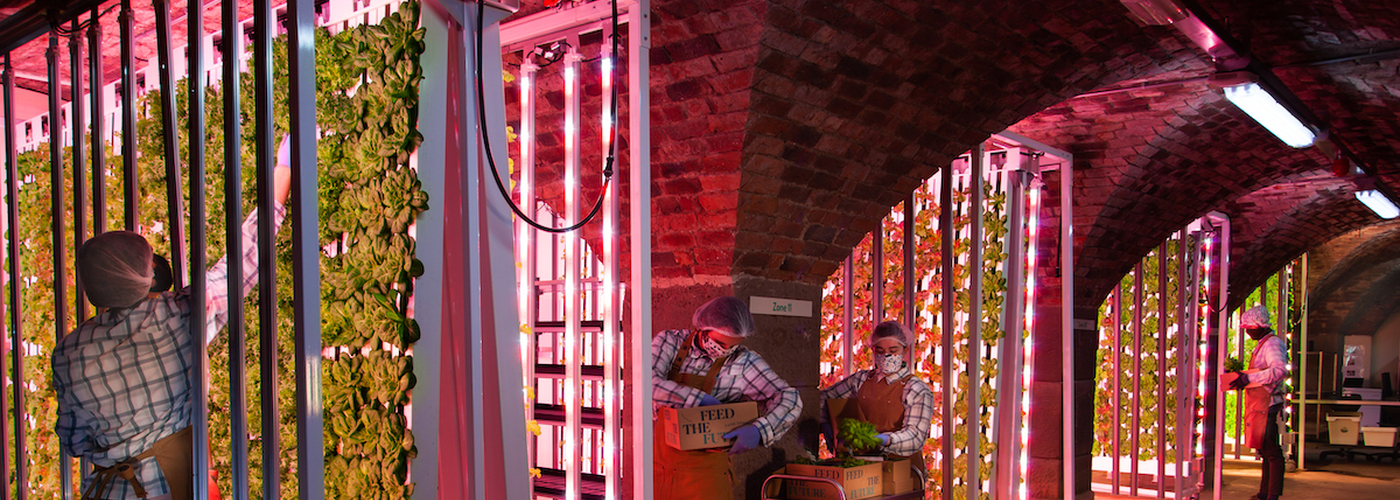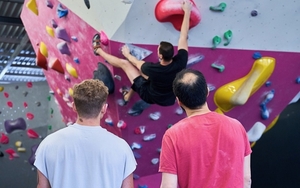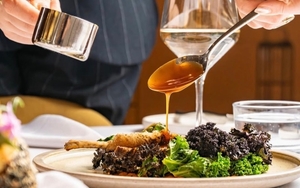Carol Emmas visits Greens for Good, Liverpool’s underground urban farm
Politically and environmentally, it seems like the whole world is going to hell in a handcart. Last night I was wide awake at 5am doom-scrolling the news on my phone. Today, I am at the Greens for Good office in the Baltic Quarter with technical director, Jens Thomas.
Chilled-out, barefoot and fronting a backdrop of luscious greenery and the trickling of hydroponic water tanks, he’s about to give me an alternative take on the world.
The idea of urban farming ticks a lot of boxes. It’s about having a much wider and deeper impact than about just growing food.
Greens for Good is the community-driven side of Farm Urban, which produces salad and herbs using hydroponic technology vertical towers. Fresh greens are grown in a state-of-the-art urban farm in the centre of Liverpool. They’re distributed to homes and workplaces, mostly using pedal power. It’s both a futuristic but wholly logical vision, in terms of reimagining how produce is grown and distributed. There are no pesticides.
Jens explains, “We have the kind of farm that's producing these amazing super fresh greens that we're selling to the local community. But we can’t be certified organic because the plants are not grown in soil.”
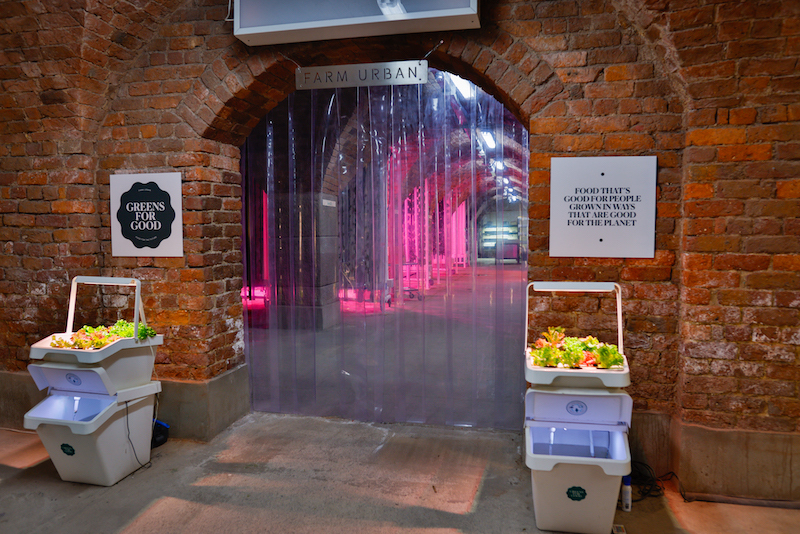
Jens says, "The development of our urban oasis model allows us to begin to change the face of cities and bring nature and food into them. For us, it’s about having lots of these small-scale vertical farms across cities, for example in car parks, offices and unused buildings with interconnected networks that can really support each other.
"It’s a way of reinvigorating communities and giving them autonomy and a sense of ownership over their communities, the food and where it comes from."
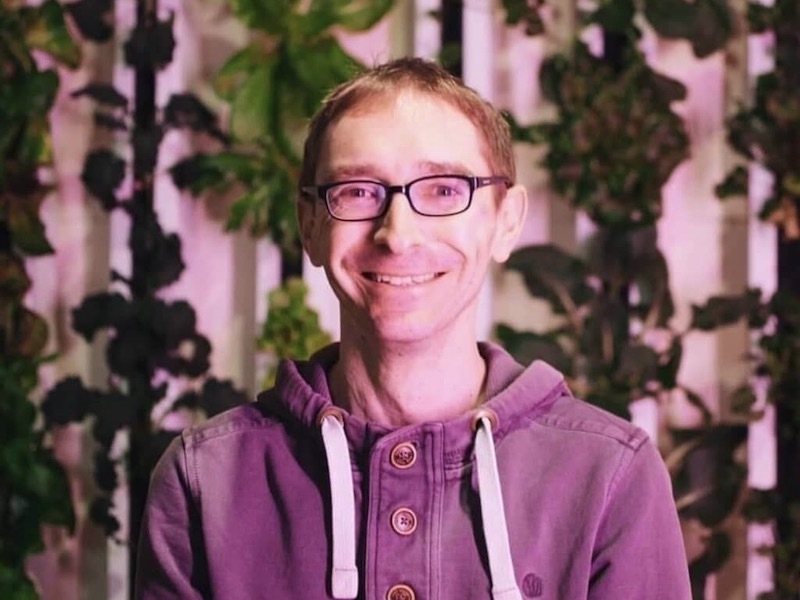
Greens for Good was established in 2014 but didn’t really get into its groove until 2019. The company now employs 15 people. The services provided are headed up by Alex Hannah who oversees operations of the vertical farm, individual customers, restaurants and donation partners.
Farm Urban concentrates on the larger, more commercial picture of working with outreach and engagement programmes and helping businesses become healthier through the installation of initiatives like living edible green walls.
Jens says, “We can run programmes with community groups to build and install their versions of the system. We also have an education programme where we teach kids about the issues with the environment and encourage them to see themselves in those future spaces. As they’re the ones that are going to help us solve this problem.”
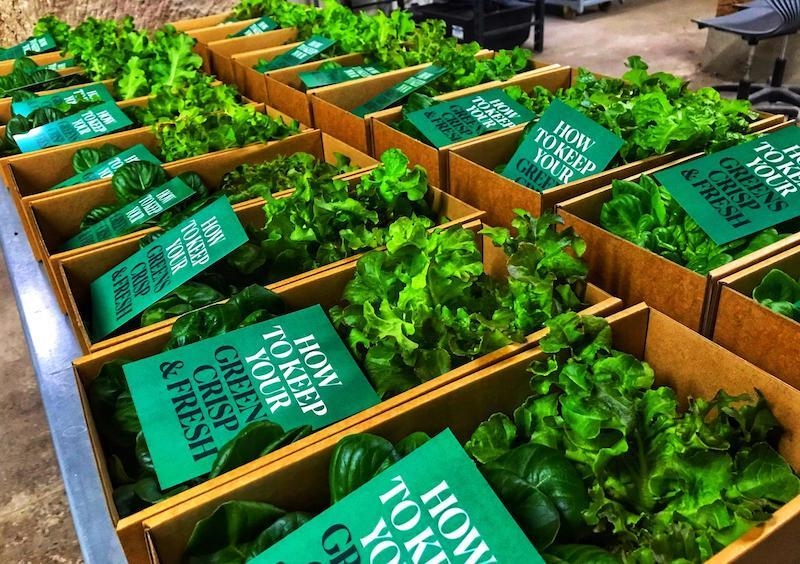
Jens met co-founder and managing director Paul Myers at a Thai boxing class. Both are doctors in their specialisations. Jens is computational chemistry and biochemistry with a PhD in protein structure. Paul has a PhD in molecular epigenetics - which is about how the environment affects DNA on a structural level.
Jens says, “I realised that life kept on pushing us together. We’d have these really interesting conversations about all sorts of things, quantum physics, spirituality and sustainability, about the malaise in society and how to fix the symptoms.”
He adds, “Currently, we have a government going in the completely opposite direction by saying ‘more money, more oil, more fracking’. It’s pushing that old broken system further and harder and where it only benefits just a few. Our ideas may be left-field and no one has cracked how to make it profitable.
"But even profitability in conventional farming is difficult. The way we eat is also one of the biggest causes of environmental damage to the planet. So the idea of urban farming ticks a lot of boxes. It’s about having a much wider and deeper impact than about just growing food.”
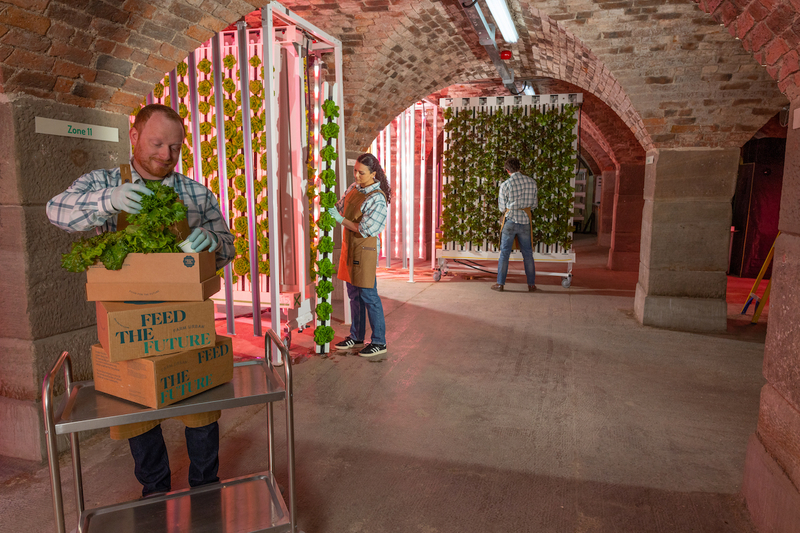
The ideas are still young in practice and so a natural evolution has been part of the development. COVID-19 and Brexit both unwittingly played into their hands and pushed them in directions they naturally wanted to go in, but perhaps couldn’t clarify at the time.
“At first COVID looked like a disaster,” says Jens. “We worked with schools and local businesses and were just about to partner with local restaurants, then suddenly everything closed overnight. But it worked in our favour because of the disconnect between the global supply chain which meant suddenly there were problems getting fresh food.
“So we got a bunch of grants to be able to provide our produce as a box delivery by bicycle and connect directly with people across the city, which is really what we want to do.
"Before COVID we hadn’t reached full optimisation in terms of being able to figure out how to get the produce to the people cheaply enough. We were thinking it would take at least another year - but COVID allowed us to ramp that up.
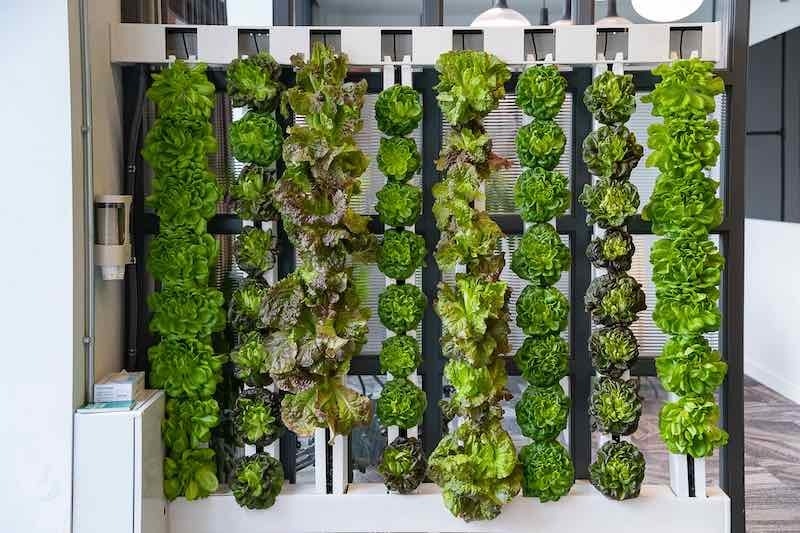
“Personal opinions aside, Brexit highlighted several issues in terms of non-local production and long supply chains with produce being shipped across borders. If we can be more sustainable and produce more food locally, of course there are numerous benefits.”
He adds, “It’s also becoming clearer to people what we’re doing. When we first started people were asking, 'why are you doing that?' But more recently a magnifying glass has been shone on issues that were previously unclear, such as getting food out of Ukraine. It points to big problems in the underlying system.”

The energy crisis is the next hurdle with an energy-driven model, even though Jens says their model is 60 times more efficient in terms of space than conventional farms.
“Conventional farming has a huge environmental impact, which isn't costed anywhere, other than we [humans] have to clear it up,” Jens says. “So it's hugely expensive, but those costs aren’t passed on to anyone other than indirectly.
“For us, it’s about a much bigger picture. We developed from a set of ethics and values. So rather than a business that was started specifically to make money - it’s more about wanting to have more of an impact in the world.”
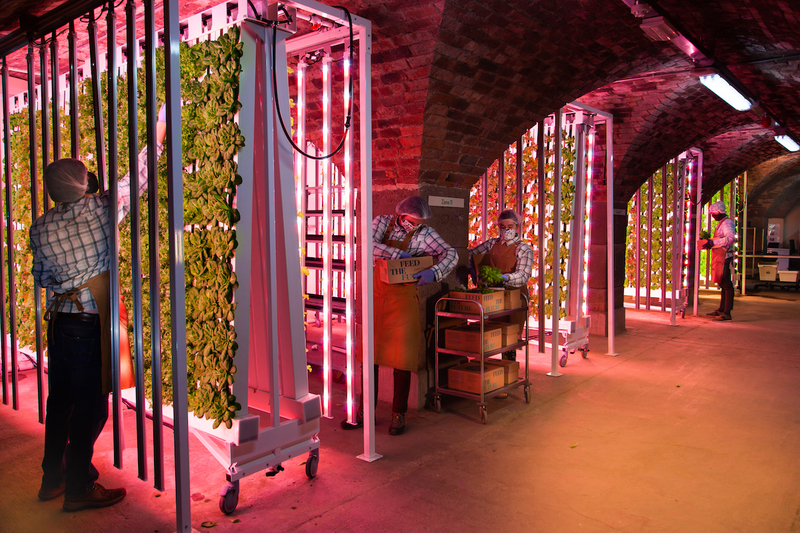
In terms of the future, Jens says the business really is starting to blossom. “We’re realising that what we're developing could potentially be massive,” he says.
“I can see these urban oases springing up all over the place and having a huge impact on a city. Once we've rolled a few of these out, we'll then have the full experience and expertise, plus the ability to optimise the farming. Then we can see what it’s really capable of and how whole different kinds of new urban farming models could open up.”
Sometimes in life, you just have to look at things from a different perspective.
Greens for Good offer deliveries of fresh greens direct to your door. For more information, visit the Farm Urban website.
Read next: Restaurant will cook without gas or electric to protest soaring energy bills
Read again: Harrods for hippies: Inside the largest LUSH in the world
Get the latest news to your inbox
Get the latest food & drink news and exclusive offers by email by signing up to our mailing list. This is one of the ways that Confidentials remains free to our readers and by signing up you help support our high quality, impartial and knowledgable writers. Thank you!






